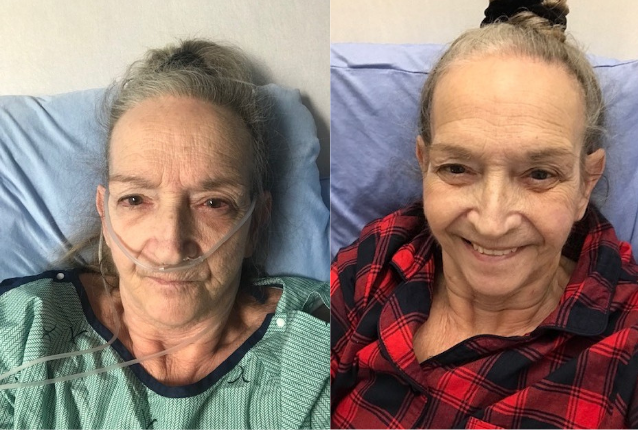Community Spotlight - Lynda Winter
“My lungs were at 22 per cent capacity and going outside during heat waves or when the air was bad from the wildfires was impossible.”
Climate change doesn’t only impact the weather, it impacts air and water quality, local and global food supply chains, the economy, and most importantly, our health. Heat waves are becoming increasingly more extreme, pollen seasons are extending, and the frequency of wildfires have more than doubled in the past two decades. This has caused us to spend more time inside and adapt our activities for a certain period or until hazard warnings from public health subside. However, for someone like Lynda Winter, who had chronic obstructive pulmonary disease (COPD) and underwent a double lung transplant, climate change has been life altering for her and her family for years.
Those living with lung conditions like asthma and COPD face greater risks from climate change as their symptoms can be worsened. Higher temperatures that produce airborne allergens (pollens), as well as heavy rainfall that leads to higher humidity outside and mold within homes also make it harder to breathe, even for a “healthy” person.
Lynda Winter spent three years in the Woodstock Hospital’s COPD program before getting on the transplant list and receiving a double lung transplant in March of this year. “My lungs were at 22 per cent capacity and going outside during heat waves or when the air was bad from the wildfires was impossible,” shares Lynda. “I even had to be careful of the pollen in the air because getting a sniffle would mean being taken off the transplant list.”

Another aspect of climate change that significantly impacts health is the stress it causes. Although this is a health impact that many feel, it takes on an increased meaning when you’re isolated. “Before my transplant, I couldn’t even walk to my car in the driveway when it was humid or the air was poor and had to stay home and FaceTime my family,” says Lynda. “It can be lonely, especially when you have grandchildren who you want to see but can’t.”
In Lynda’s life, climate change has not only impacted her but her children and grandchildren. She urges us to think about climate change not only as something that seriously impacts those who have respiratory illnesses, but also impacts every single person in different ways. She is very thankful her family was so supportive and hopped on FaceTime calls or made the drive to see her, but acknowledges that it was hard for them too, as they worried about her health.
Thinking about climate change and its collective impact will be the key to positively changing the negative perceptions surrounding the environment and its impact on health. Lynda’s story shows the health impact of climate change on both a personal level as well as on healthcare systems and services. The more we think and act together, the healthier we will ultimately be.
Contact Us
Southwestern Public Health (8:30 a.m. - 4:30 p.m., Monday - Friday)
St. Thomas Site
(Administrative office)
1230 Talbot Street
St. Thomas, ON N5P 1G9
Woodstock Site
410 Buller Street
Woodstock, ON N4S 4N2
Call us toll free: 1-800-922-0096
Email us
Work with Us
Southwestern Public Health (SWPH) values our people! We pride ourselves on our positive and flexible work environment.
